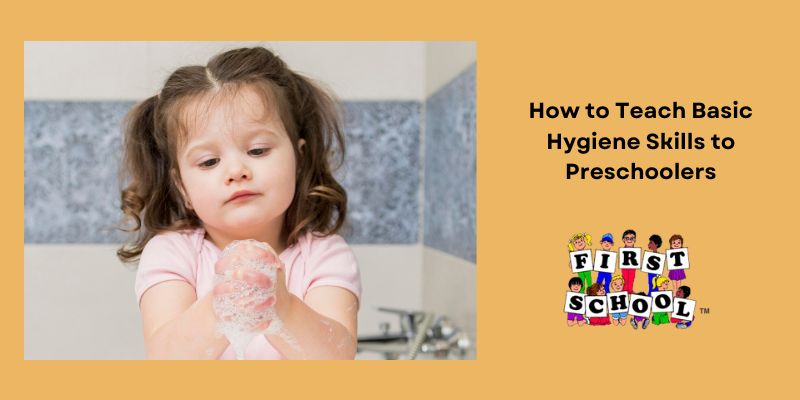



Good hygiene is one of the most important lessons we can teach young children. Personal hygiene for kids isn’t just about keeping them clean, it’s about building healthy habits that will last a lifetime. Teaching these skills early helps prevent illness and boosts self-confidence. But here’s the challenge: teaching hygiene to preschoolers works best when it’s fun, simple, and hands-on.
Help your preschooler stay healthy and confident with these easy hygiene tips and playful learning strategies!
At the preschool stage, kids are naturally curious and eager to explore the world around them. This is also when they start interacting closely with others, making them more prone to catching colds, flu, and infections. Teaching kids about germs and basic hygiene habits can significantly reduce sick days.
Good hygiene also plays a huge role in building self-confidence and social skills. When children feel fresh and clean, they are more comfortable around peers. While preschoolers are becoming more independent, they still need guidance and reminders to keep up with daily hygiene routines.
Let’s look at the key personal hygiene for kids that every preschooler should learn:
Keeping preschoolers engaged can be tricky, but these fun ideas make learning hygiene enjoyable:
Turn hygiene into playtime! Sing songs like “Happy Birthday” twice while washing hands to teach timing. Use sticker charts to track tooth brushing and reward consistency. Hygiene games for preschoolers, like using dolls to practice washing and brushing, also work wonders.
Kids love colorful visuals. Hang posters with step-by-step hygiene routines in the bathroom. Picture books about germs and cleanliness can make the topic less scary and more relatable. You can also find fun videos and cartoons that explain personal hygiene for kids in a playful way.
Children mimic what they see. Let them watch you wash your hands, brush your teeth, and care for your hygiene. Practice together to reinforce habits and show that hygiene is essential for everyone.
Consistency is key. Set specific times for hygiene tasks, like brushing teeth after breakfast and before bed. Use a two-minute timer for brushing teeth to ensure they do a thorough job. Repetition helps turn small tasks into lifelong habits.
It’s normal for preschoolers to resist certain hygiene tasks. If your child doesn’t want to brush their teeth or wash their hands, try offering choices like picking their toothbrush or soap. Make it a bonding moment rather than a battle.
When things get messy, like spilled soap or toothpaste, all over the sink, stay calm and use it as a teachable moment. Encourage independence, but always supervise to ensure the job gets done correctly.
Parents and teachers need to work together to stick to hygiene habits. Share routines between home and school so your child gets consistent messages. Teachers can support hygiene lessons in the classroom while parents continue the practice at home.
Regular check-ins between parents and teachers can help identify struggles and celebrate progress. Whether it’s through hygiene games for preschoolers or routine bathroom breaks, teamwork makes a big difference.
Teaching hygiene to preschoolers is not just about keeping them clean, it’s about building healthy habits that will last a lifetime. By turning hygiene routines into fun, interactive activities, you can make learning these essential skills enjoyable and exciting for your little one. With creativity, patience, and consistency, your preschooler will develop strong hygiene habits they can be proud of!
At First School, we’re passionate about making learning fun and impactful. We’d love to hear your tips and tricks for teaching hygiene playfully.
Contact us if you need more guidance to support your child’s hygiene journey!